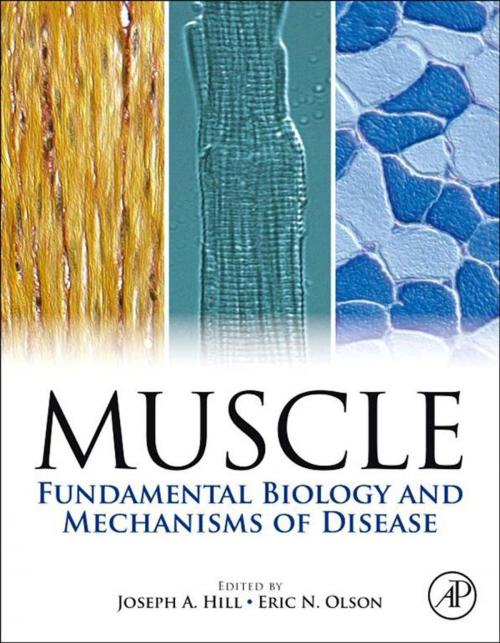Muscle 2-Volume Set
Fundamental Biology and Mechanisms of Disease
Nonfiction, Health & Well Being, Medical, Medical Science, Pharmacology, Science & Nature, Science, Biological Sciences| Author: | ISBN: | 9780123815118 | |
| Publisher: | Elsevier Science | Publication: | August 29, 2012 |
| Imprint: | Academic Press | Language: | English |
| Author: | |
| ISBN: | 9780123815118 |
| Publisher: | Elsevier Science |
| Publication: | August 29, 2012 |
| Imprint: | Academic Press |
| Language: | English |
A valuable study of the science behind the medicine, Muscle: Fundamental Biology and Mechanisms of Disease brings together key leaders in muscle biology. These experts provide state-of-the-art insights into the three forms of muscle--cardiac, skeletal, and smooth--from molecular anatomy, basic physiology, disease mechanisms, and targets of therapy. Commonalities and contrasts among these three tissue types are highlighted. This book focuses primarily on the biology of the myocyte.
Individuals active in muscle investigation--as well as those new to the field--will find this work useful, as will students of muscle biology. In the case of hte former, many wish to grasp issues at the margins of their own expertise (e.g. clinical matters at one end; molecular matters at the other), adn this book is designed to assist them. Students, postdoctoral fellows, course directors and other faculty will find this book of interest. Beyond this, many clinicians in training (e.g. cardiology fellows) will benefit.
- The only resource to focus on science before the clinical work and therapeutics
- Tiered approach to subject: discussion first of normal muscle function through pathological/disease state changes, and ending each section with therapeutic interventions
- Coverage of topics ranging from basic physiology to newly discovered molecular mechanisms of muscle diseases for all three muscle types: cardiac, skeletal, and smooth
A valuable study of the science behind the medicine, Muscle: Fundamental Biology and Mechanisms of Disease brings together key leaders in muscle biology. These experts provide state-of-the-art insights into the three forms of muscle--cardiac, skeletal, and smooth--from molecular anatomy, basic physiology, disease mechanisms, and targets of therapy. Commonalities and contrasts among these three tissue types are highlighted. This book focuses primarily on the biology of the myocyte.
Individuals active in muscle investigation--as well as those new to the field--will find this work useful, as will students of muscle biology. In the case of hte former, many wish to grasp issues at the margins of their own expertise (e.g. clinical matters at one end; molecular matters at the other), adn this book is designed to assist them. Students, postdoctoral fellows, course directors and other faculty will find this book of interest. Beyond this, many clinicians in training (e.g. cardiology fellows) will benefit.
- The only resource to focus on science before the clinical work and therapeutics
- Tiered approach to subject: discussion first of normal muscle function through pathological/disease state changes, and ending each section with therapeutic interventions
- Coverage of topics ranging from basic physiology to newly discovered molecular mechanisms of muscle diseases for all three muscle types: cardiac, skeletal, and smooth















